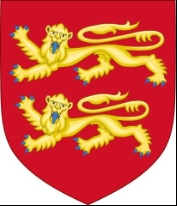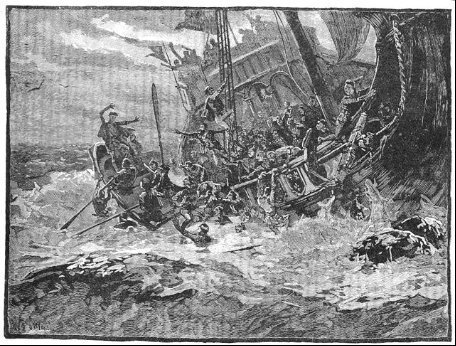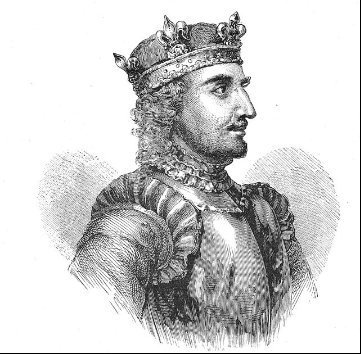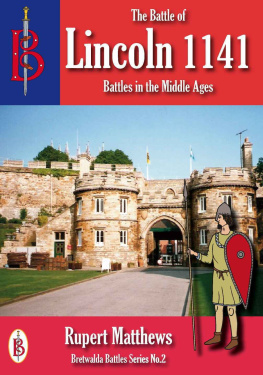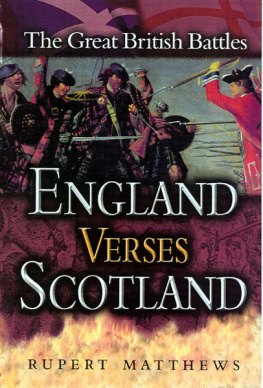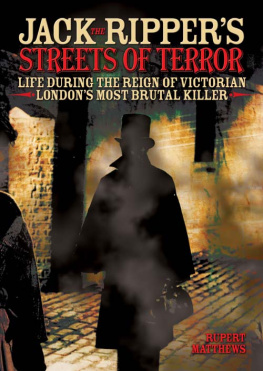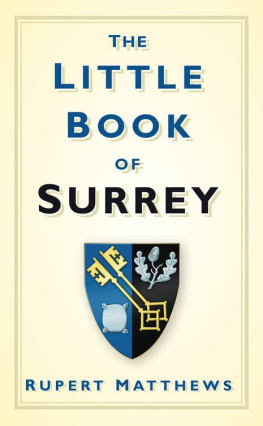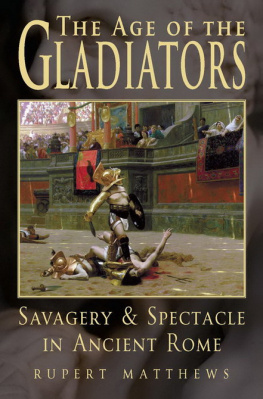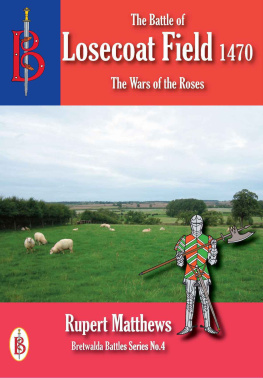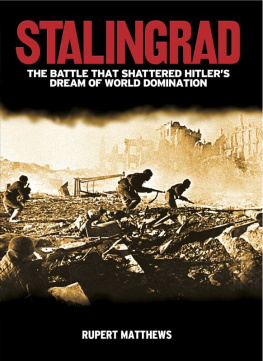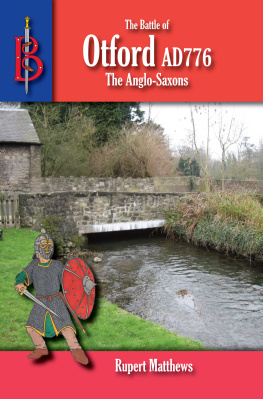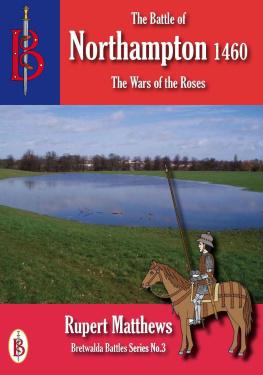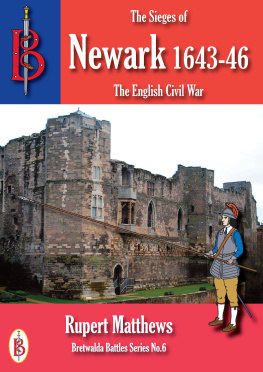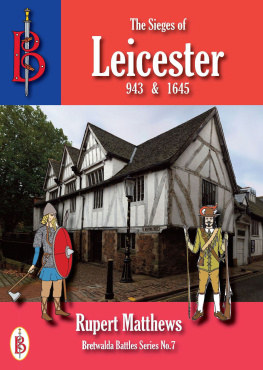Bretwalda Battles
Medieval Wars
The Battle of Lincoln 1141
by Rupert Matthews
*****************
Published by Bretwalda Books
Website : Facebook : Twitter : Blog
This ebook is licensed for your personal enjoyment only. This ebook may not be re-sold or given away to other people. If you would like to share this book with another person, please purchase an additional copy for each person. If you're reading this book and did not purchase it, or it was not purchased for your use only, then please purchase your own copy. Thank you for respecting the hard work of this author.
First Published 2013
Copyright Bretwalda Books 2013
Oliver Hayes asserts his moral rights to be regarded as the author of this work.
ISBN 978-1-909099-64-7
*****************
Contents
When God and his Angels slept
Leaders at Lincoln
Men, Weapons and Tactics
Chapter 4 The Battle of Lincoln
Aftermath
************
The Battle of Lincoln seemed to be a turning point in the civil war that had broken out in England in 1135. For more than a year the two main rival armies had been moving around England, both looking for a weakness in the other, but neither willing to strike. All that ended at Lincoln in February 1141 when Earl Robert of Gloucester caught King Stephen at a disadvantage and launched an assault that he hoped would end the war in a single blow.
The battle that followed is one of the best recorded conflicts of its age. Unlike most medieval battles, the Battle of Lincoln was recorded by a chronicler who spoke to men who had been there and who were able to describe who had done what and why. The battle belies the usual image of medieval battles as a vicious free for all and instead shows just how subtle and sophisticated the tactics and strategems could be.
With its violence, fury and drama, the Battle of Lincoln was one of the most decisive battles of medieval England. It is not often that a king is captured by his rival for the throne, still less is he wrestled to the ground while hacking at his enemies with a two-handed sword able to slice a man in half. The capture of King Stephen gave his rival Empress Matilda a crucial advantage when it came to securing the throne of England. That she was not able to do so was as much her own fault as it was anyone elses.
The battle was fought to the west of the old city walls, overlooking the Fossdyke and what is now the old racecourse. Part of the battlefield was built over in the 19th century, with roads such as Cambridge Avenue, York Avenue and Richmond Road covering the most likely site of King Stephens original position. But other parts of the battlefield, west of Rosebery Avenue are little different from how they were back in 1141 when a king came to Lincoln and nearly lost his crown.
This book seeks to explain why the Battle of Lincoln was fought, how it was fought and what its results turned out to be. So read on and learn how history was made in Lincoln.
************
When God and His Angels Slept
From 1135 to 1153 England was torn apart by a savage civil war that saw the kingdom subjected to the most brutal horrors of medieval warfare. As central government control collapsed, nobles engaged in murderous feuds with each other and with the serfs and freemen they were supposed to protect. Civilians were raped, robbed and killed in large numbers as gangs of armed men roamed the country. Many of the most violent acts were carried out by men claiming to be supporters of one side or the other, but who were really just vicious bandits out to grab what they could while the anarchy prevailed.
The civil war was the result of a shipwreck in 1120 when Adelin, son and heir of King Henry I of England, was drowned. That left Henry without a legitimate male heir not only for the Kingdom of England, but also for the Duchy of Normandy and County of Cotentin that he also ruled. His only legitimate child left - he had numerous illegitimate children - was his daughter Matilda. She had married Holy Roman Emperor Henry V and, after his death in 1125 she returned to England. Henry made all his nobles swear that they would accept Empress Matilda as their Queen after his death.
The wreck of the White Ship off Barfleur, Normandy, on 25 November 1120 caused the death of Prince William Adelin, only legitimate son of King Henry I of England along with 300 others. The wreck was later blamed on a drunken crew, but only two people survived the wreck and the true cause is not known.
There was some grumbling about this act. While women could, and did, own and run great estates, it was generally believed that being a ruler was not something a woman could do adequately. Rulers were expected to lead their men into battle during wartime and to travel constantly around thier lands during peacetime to dispense justice, adjudicate disputes and get to know the knights and nobles of the land. Fighting with sword or lance demanded great physical strength, something most women did not possess, while spending long hours in the saddle was not suitable for women who spent many months either pregnant or breastfeeding. Nevertheless, allowances could be made so the nobles of England and Normany duly took the oath.
Henry then ordered Matilda to marry Geoffrey of Anjou, heir to the Count of Anjou. Matilda was outraged, believing a mere count to be beneath her imperial dignity. The barons were equally appalled, since Normandy and Anjou were traditional enemies. Meanwhile, Matilda had been making herself thoroughly unpopular with the English and Norman nobles with a tactlessness and rudeness based on her clear belief that as an Empress she was vastly superior to earls and barons. She was particularly unpopular with the noblewomen, whose fashions she denounced as dowdy and whose manners she scorned in comparison to those of the imperial court.
When King Henry died, Matilda happened to be in Anjou. Much closer to England was Stephen of Blois, Count of Boulogne. Stephen was by his mother a grandchild of King William I, as was Matilda, but he was also through his father a great great grandson of King Edmund Ironside, one of the rulers from the English dynasty that William I had destroyed at the Battle of Hastings in 1066. Not only was he of royal blood, Stephen was immensely popular and widely regarded as a talented and efficient ruler of his lands. He was also a man. As soon as he heard Henry was dead and Matilda was absent, Stephen boarded a ship and headed for England. When he arrived in London he declared that he was the true King of England. The crowds in London cheeered him loudly, and as various nobles arrived they too hailed Stephen as king. The Church too came out in favour of Stephen and a few days later Stephen was crowned king in Westminster Abbey.
King Stephen as depicted in an imaginative 19th century rendering.
